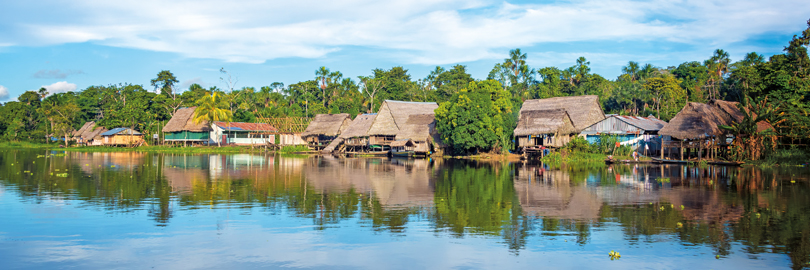COVID-19 has put at serious risk the survival and rights of the indigenous peoples of the Amazon basin, who hold deep knowledge of one of the planet’s richest ecosystems.
The virus is "one of the greatest threats to the ways of life of the indigenous peoples of the Amazon," warned the UN Human Rights Offices for South America, Colombia and the Bolivia, together with the Inter-American Commission on Human Rights (IACHR), highlighting the situation of isolated peoples, inequality, the gender perspective, and respect for consultation processes.
The organizations called for "the implementation of culturally appropriate socioeconomic support for these indigenous peoples of South America, as well as support for their self-care measures, strengthening the participation of indigenous authorities in the decisions that are made and monitoring the effectiveness of measures aimed at protecting their rights.”
They urged States with sovereignty in the region to protect the survival and rights of indigenous peoples in the Amazon basin, particularly those in voluntary isolation or in the phase of initial contact.
The Amazon is inhabited by more than 420 indigenous communities—at least 60 of them in voluntary isolation—and is one of the most naturally and culturally diverse regions in the world. The spread of COVID-19 has made evident the historical absence or limited presence of the State in many territories and its insufficient capacity to meet the needs of these peoples, the declaration explains.
The human rights bodies also called for the protection of the rights of indigenous women, who are at risk of suffering a disproportionate impact during the pandemic, due to their role in the informal economy and as caregivers. They called for ensuring that indigenous women benefit equally from social protection measures, that domestic violence be addressed, and that overburdened health systems do not result in increased maternal mortality.

